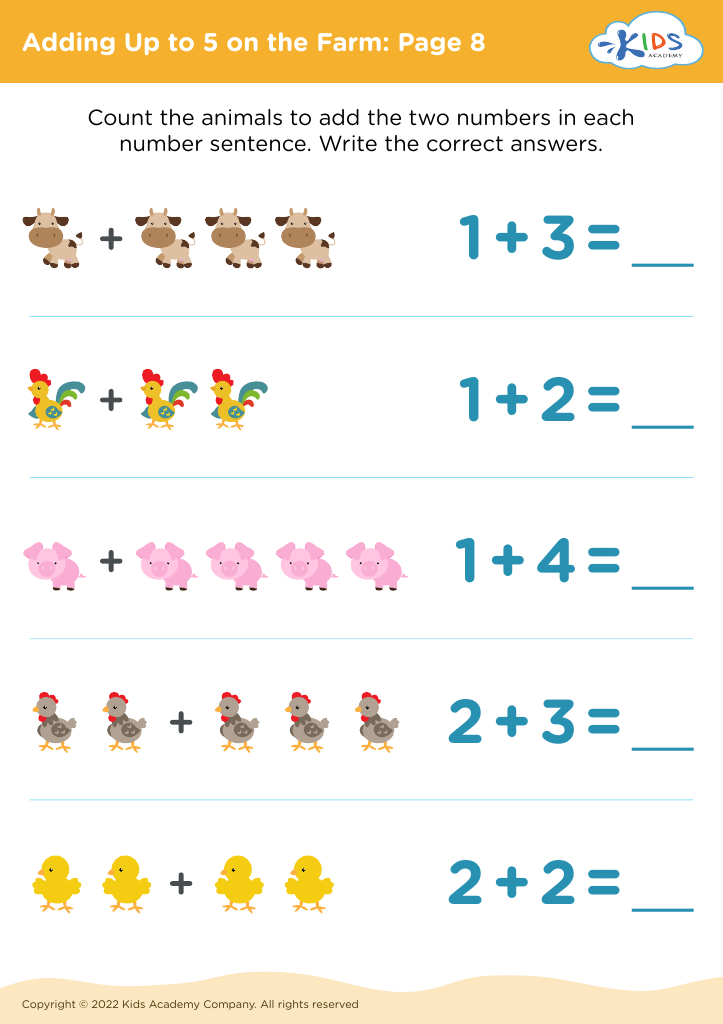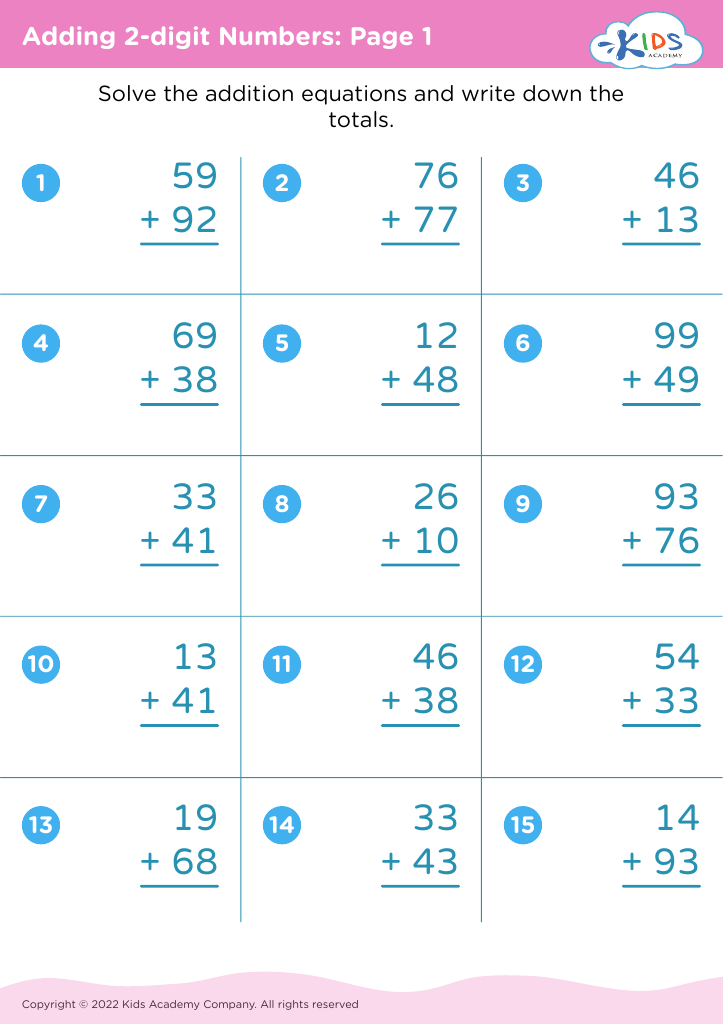Developing counting skills Addition & Subtraction Worksheets for Ages 5-8
3 filtered results
-
From - To
Enhance your child's mathematical foundation with our "Developing Counting Skills: Addition & Subtraction Worksheets for Ages 5-8." These engaging worksheets are designed to build essential counting, addition, and subtraction skills in young learners. With vibrant illustrations and fun activities, students can easily grasp basic math concepts while having fun. Our curated exercises are perfect for early grade students, promoting confidence and mastery through practice. Help your child progress from simple counting to more complex arithmetic with our expert-developed resources. Start exploring our collection today and watch your child's love for math grow!
Developing counting skills along with an understanding of addition and subtraction in children ages 5-8 is critical, laying the groundwork for future mathematical learning and cognitive development. At this age, children are at a prime stage for grasping foundational concepts through engaging and manipulable activities, which can spark their interest and establish a positive relationship with mathematics.
Counting is the basic stepping stone that enables children to comprehend number values and their sequential nature. As children become proficient in counting, they develop numerical fluency, which is essential for performing more complex mathematical operations. Addition and subtraction, being the primary arithmetic operations, build directly on the ability to count. They introduce children to the concepts of combining and separating quantities, fostering problem-solving skills and logical thinking.
From a cognitive standpoint, learning these skills enhances memory, attention, and pattern recognition. These are crucial life skills useful far beyond the realm of mathematics. Furthermore, early success in these areas boosts children's confidence and avoids feelings of frustration that can lead to math anxiety.
Therefore, parents and teachers should prioritize and support the development of these skills, ensuring that children not only meet educational benchmarks but also cultivate a lifelong love and understanding of math. Engaging children in everyday counting, simple games, and interactive learning can make this critical learning phase both effective and enjoyable.



















